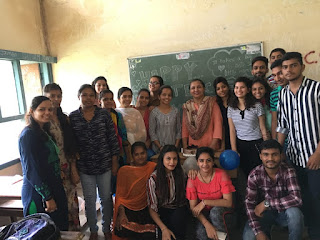“The Strange Affair of Robin S. Ngangom"
Ngangom’s “The Strange Affair of Robin S. Ngangom" is one of his longest poems. It describes a visit to his native place, Manipur, which was ravaged in the conflict between Indian armed forces and the insurgents. Though the poem is autobiographical in nature, in him is found the capability of transforming his personal experiences in a conflict ravaged land to the generalised experiences of people belonging to many parts of North-East India. It is a critique on how the powerless has to remain subdued and succumb to the wishes of the powerful even if that dispossesses them from their rights and freedom. The poem is divided into four parts. The first part of the poem (lines 1-61) is a description of how the ‘pristine’ native land of his boyhood have been turned into ‘murderous’ in the present with pervading hunger, distrust and destruction. The second part of the poem (lines 62-105) gives a description of how the Indian armed forces through their ‘appliances of death and destructio

